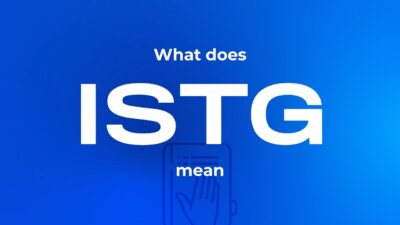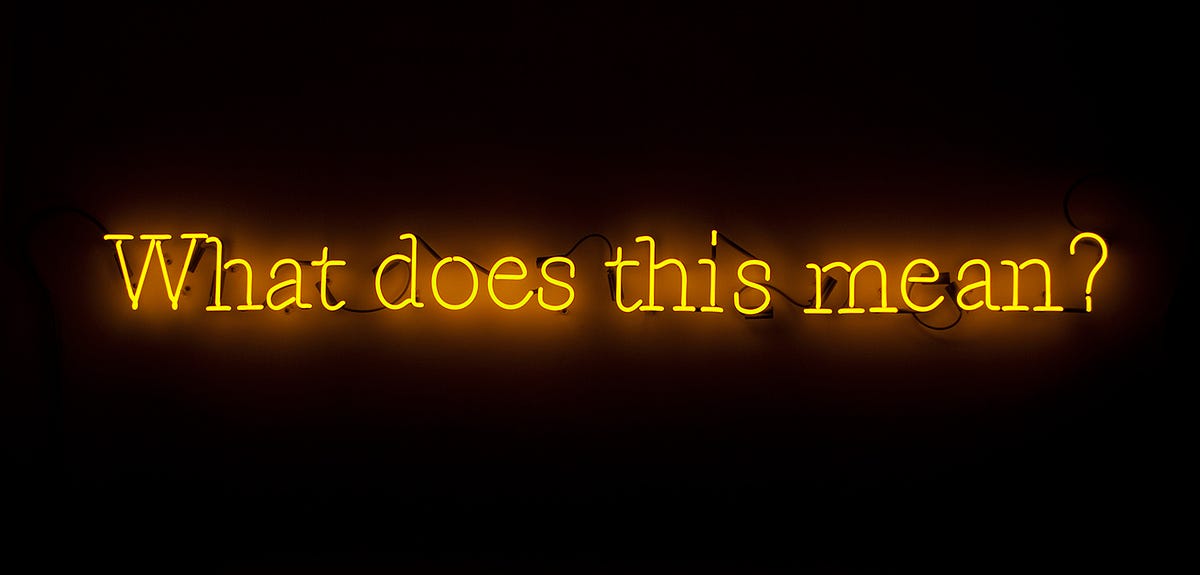Introduction The internet has revolutionized not just how we communicate, but also the language we use. With the rise of social media platforms, text
Introduction
The internet has revolutionized not just how we communicate, but also the language we use. With the rise of social media platforms, text messaging, and chat applications, people have developed a shorthand way of expressing emotions, reactions, and statements quickly. One such abbreviation that you’ve likely come across is ISTG.
It appears everywhere — in TikTok comments, Twitter threads, Instagram captions, and everyday text messages. But what exactly does ISTG mean? Why do people use it so often? And how can you use it correctly?
This article will explore the full meaning of “ISTG,” its origins, usage, emotional context, and implications. By the end of this guide, you’ll be able to confidently understand and use this expression in appropriate conversations.
What Does ISTG Mean?
ISTG stands for “I Swear To God.”
It’s used to emphasize sincerity, seriousness, frustration, or emotional intensity. It serves as a shorthand oath or dramatic expression, especially when someone wants to prove they’re telling the truth or are extremely passionate about what they’re saying.
Depending on the tone and context, it can reflect a wide range of emotions — from earnest honesty to complete exasperation.
The Origins of ISTG
The full phrase “I swear to God” has been used in English for centuries, often as a solemn vow or oath. It originally held deep religious meaning, implying a promise made in the presence of a higher power. However, in modern informal usage, especially online, this expression has become more casual and emotionally expressive.
ISTG emerged during the rise of internet and SMS culture in the early 2000s, where character limits and speed were essential. People began shortening commonly used phrases to save time and effort, resulting in widespread abbreviations like:
- LOL (Laughing Out Loud)
- BRB (Be Right Back)
- TBH (To Be Honest)
- IDK (I Don’t Know)
- ISTG (I Swear To God)
Over time, ISTG became a regular part of online vocabulary, especially among teens and young adults.
How Is ISTG Used?
ISTG is incredibly versatile and can be used in multiple emotional tones. Here are the most common ways it’s used:
1. To Emphasize Honesty
People often use ISTG to convince someone they’re telling the truth.
Example:
“ISTG, I didn’t take your hoodie. I haven’t even been in your room.”
2. To Express Frustration or Anger
When someone is irritated or at their limit, ISTG emphasizes their frustration.
Example:
“ISTG, if my boss asks me to stay late one more time, I’m quitting.”
3. To Show Disbelief or Shock
It can be used to express amazement or surprise, either positive or negative.
Example:
“ISTG, she just bought another pair of shoes — that’s the third one this week!”
4. As a Dramatic Reaction
In casual conversations, people use ISTG dramatically for humor or exaggeration.
Example:
“ISTG, I’ll pass out if I see him at the party.”
5. To Make a Promise or Threat
ISTG can also serve as a promise — or even a warning — depending on the situation.
Example:
“ISTG, if you leak that secret, we’re done.”

Tone and Emotional Impact
Tone is essential when interpreting or using ISTG. While it’s technically the same phrase in every case, the tone in which it’s said — or typed — completely changes the meaning.
- Calm tone: Honest, straightforward (“ISTG, I didn’t do it.”)
- Aggressive tone: Angry or threatening (“ISTG, don’t test me.”)
- Playful tone: Joking or exaggerated (“ISTG I’ll cry if I miss this sale!”)
The internet has made tone a bit harder to interpret without facial cues or voice inflection, so it’s always good to understand the context and relationship between people using the term.
Where You’ll Commonly See ISTG
ISTG appears frequently on social media and digital communication platforms. Here’s where you’re most likely to come across it:
- Text Messaging: Friends and peers use ISTG to add emotion and sincerity.
- Twitter/X: Users often post dramatic or relatable tweets using ISTG.
- TikTok: Appears in captions or comments to exaggerate feelings or reactions.
- Instagram: Found in stories, memes, or comment sections to add emphasis.
- Snapchat: Used in quick messages or as text on snaps to show truth or intensity.
Its widespread use has made ISTG part of internet culture, especially among Gen Z and younger millennials.
Why Is ISTG So Popular?
There are several reasons for the popularity of ISTG:
- Convenience: It’s much quicker than typing the full phrase.
- Emotional Power: It packs a lot of emotional weight into four letters.
- Relatability: It captures everyday feelings like frustration, shock, and honesty.
- Trendy Language: Online slang keeps evolving, and ISTG remains current and common.
These factors contribute to why it has stuck around, unlike many other internet phrases that fade over time.
Is ISTG Offensive?
While ISTG is not considered a curse word, it can be controversial due to its religious connotation. The phrase “I swear to God” invokes a spiritual vow, and in some cultures or religious communities, using God’s name casually may be viewed as disrespectful or even blasphemous.
That said, in most digital and informal contexts, ISTG is not used with literal religious intent. It’s treated more as a casual, emotional expression. Still, it’s wise to be cautious:
- Avoid in formal or professional settings
- Use sparingly in intergenerational conversations
- Be respectful of cultural and religious sensitivities
Similar Expressions to ISTG
Here’s a quick comparison of ISTG with other common internet slang expressions:
| Abbreviation | Meaning | Use |
| ISTG | I Swear To God | Strong emotion, sincerity, frustration |
| TBH | To Be Honest | Truthfulness or opinion |
| IDK | I Don’t Know | Expresses uncertainty |
| SMH | Shaking My Head | Disappointment or disbelief |
| LMAO | Laughing My Ass Off | Extreme laughter |
| IKR | I Know, Right? | Agreement or validation |
Understanding these helps users navigate digital communication more effectively.
When Not to Use ISTG
While ISTG is widely accepted in informal settings, there are situations where it may not be appropriate:
- Job interviews or professional emails
- Academic writing
- Religious discussions
- Talking to elders or authority figures unfamiliar with slang
- Any setting where respectful, formal language is expected
In these contexts, alternatives like “I promise,” “Honestly,” or “I assure you” work better.
The Role of ISTG in Digital Language Evolution
ISTG is part of a much larger trend where traditional language transforms in the digital space. We are seeing a shift from full sentences to emojis, acronyms, gifs, and voice messages. Short expressions like ISTG allow people to quickly communicate tone, emotion, and urgency — something that traditional writing often struggles to do.
These abbreviations have helped create a shared culture, especially among young people, that crosses geographic and linguistic boundaries. Understanding them isn’t just about decoding words — it’s about understanding how people connect and express themselves today.
Conclusion
ISTG is a modern digital abbreviation for “I Swear To God.” It serves as a powerful expression to convey sincerity, frustration, excitement, or exaggeration — all depending on the tone and situation. Though rooted in traditional language, ISTG has evolved into a casual slang term that thrives in online conversations.
Whether you’re texting a friend, reacting to a viral video, or navigating internet humor, knowing what ISTG means and how to use it can help you stay current and connect more effectively in digital communication. Just remember to use it appropriately based on your audience, and you’ll fit right in with today’s fast-moving online culture.
FAQs About ISTG
Q1: What does ISTG mean in texting?
A: It means “I Swear To God.” It’s used to show strong emotion, sincerity, or frustration in a short, dramatic way.
Q2: Is ISTG a bad word?
A: No, it’s not a curse word, but it can be seen as inappropriate in religious or formal settings due to its reference to God.
Q3: Can I use ISTG in school essays or work emails?
A: No. ISTG is informal slang and should be avoided in academic or professional writing.
Q4: Who uses ISTG the most?
A: It’s most commonly used by teenagers and young adults, especially on social media.
Q5: What can I say instead of ISTG?
A: You can say “Honestly,” “I promise,” “For real,” or “I’m serious.”
Q6: Is ISTG used worldwide?
A: While ISTG is mainly used in English-speaking regions, similar slang may exist in other languages. Its meaning is widely recognized in global internet culture.
Q7: Can ISTG be used in jokes?
A: Yes! Many people use it in a dramatic or funny way to exaggerate feelings for comedic effect.
Q8: Does ISTG always imply truth?
A: Not always. Sometimes it’s used jokingly or dramatically, not literally.
More Info: primereport




COMMENTS